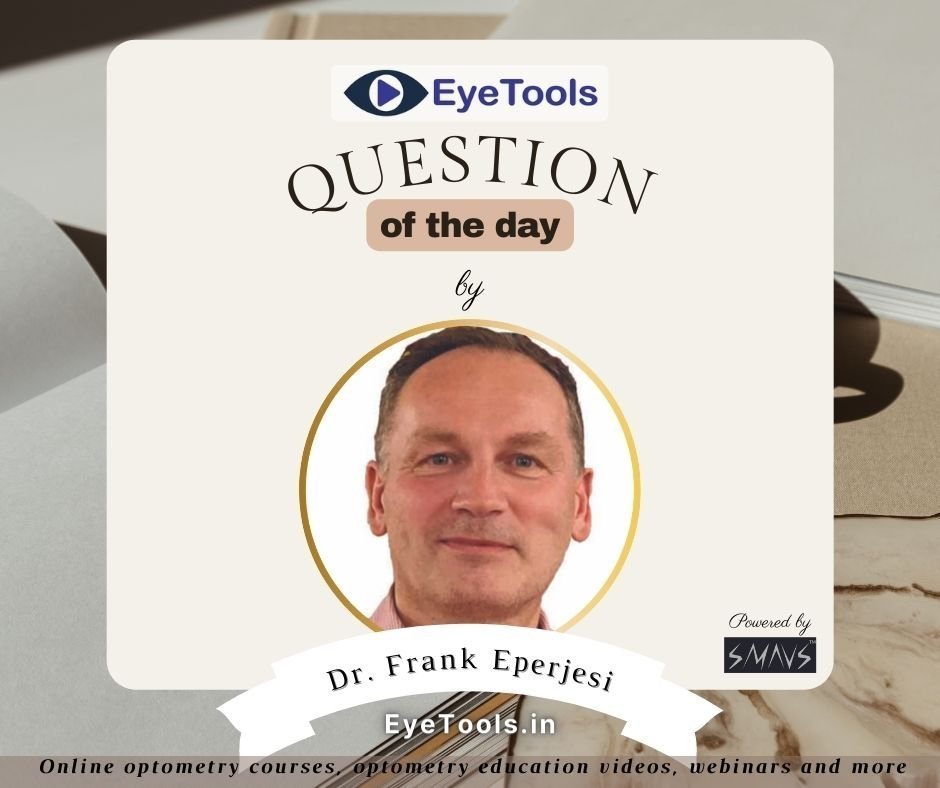
Welcome to Question of the Day #371
EyeTools Question of the Day #371
I work in a community eye care practice. I have recently qualified and look young for my age. Some patients comment on how young I look. I sense that they are worried that I am young and therefore not competent enough to examine their eyes. Do you have any tips as to how I can overcome this?
Looking young can sometimes cause this type of comment even for practitioners who have been qualified for years.
My suggestion is to take control of the situation with confidence immediately after exchanging greetings with your patient.
I’m not so young looking but I still want the patient to have confidence in my competence so I take control quickly.
After greeting the patient this is what I say:
‘Please take a seat on that big chair over there. My name is Frank and I’m going to be looking at your eyes. Now are you having any problems with your vision or with your glasses.’.
I also explain tests.
‘Next, I’m going to work out how well you can see. Please look at the letters over there. What is the smallest set of letters you can see.’
This next test measures your eye pressure and it’s very important to know that.’
This next test will help me check the health of the eyes. Please look across the room.’
I also regularly give praise.
That’s great. Well done. Your eye pressure is in the normal range.’
If I take photographs or an OCT scan I will show the patient to image and describe it. For a fundus image:
‘Here is a photograph of the back of your right eye. This pale area here is your optic nerve and this connects your eye to your brain. It looks healthy. These red lines are your blood vessels and they look healthy as well. This orange area is your retina and that looks healthy as well.'
Of course if there are abnormalities, you can talk about these.
Then at the end I summarise something like this: So, in summary, your near lenses need to be stronger to help you with your reading, you have a little bit of cataract in each eye, but these do not yet need surgery. Everything else looks good. I want to monitor your cataracts, so I recommend another examination in 12 months. I will contact you nearer the time. Do you have any questions you want to ask me about anything I’ve said or done?’.
The key to developing your confidence is to pay attention to what the patient tells you, give clear instructions in a professional way, explain what you are doing and what you have found, and then summarise.
Even if your patient did manage to comment on how young you look, at the end of the examination they will be confident you are competent and are unlikely mention how you look at their next eye examination with you.



1.jpg)



.jpg)
.jpg)



_(Instagram_Post).jpg)
.jpg)
_(1080_x_1080_px).jpg)


with_UP_Cabinet_Minister_Sh_Nand_Gopal_Gupta_at_OpticsFair_demonstrating_Refraction.jpg)
with_UP_Cabinet_Minister_Sh_Nand_Gopal_Gupta_at_OpticsFair_demonstrating_Refraction_(1).jpg)

.jpg)








.jpg)



.png)




